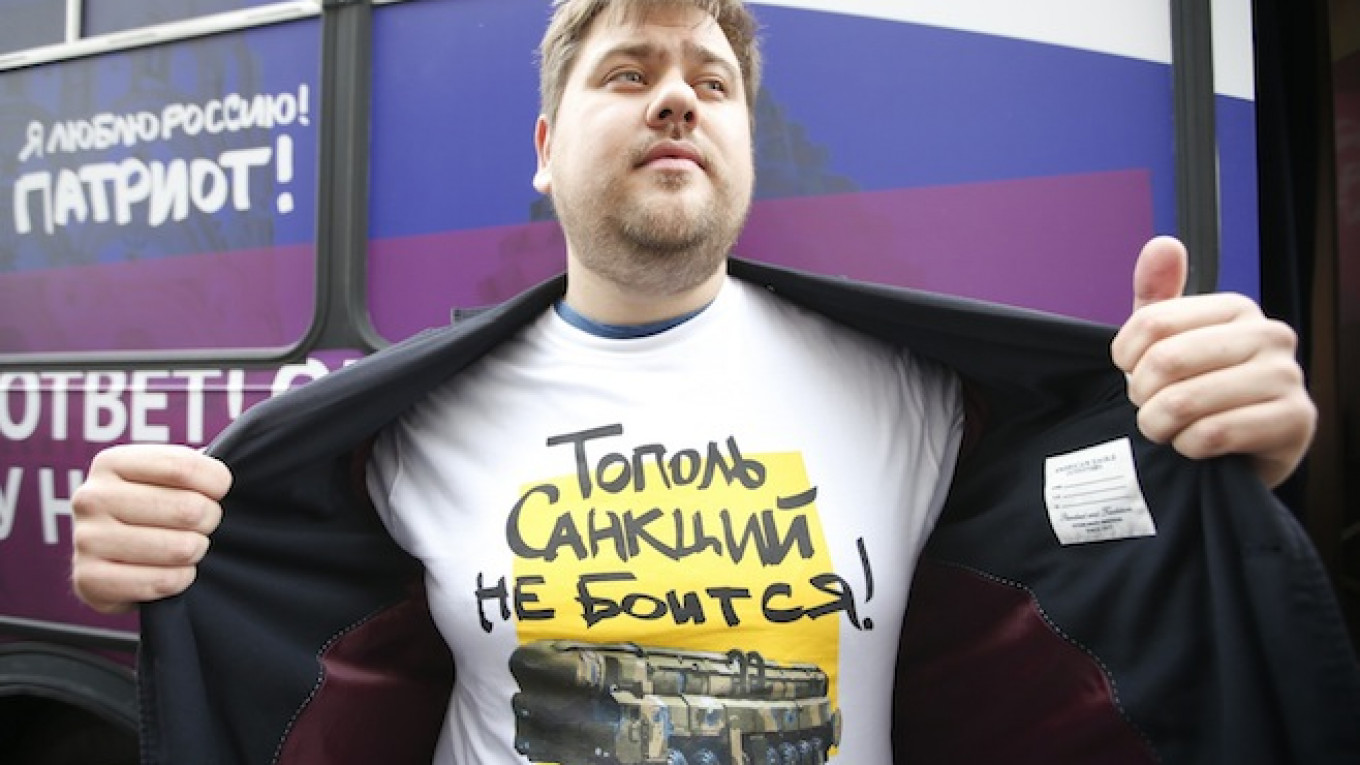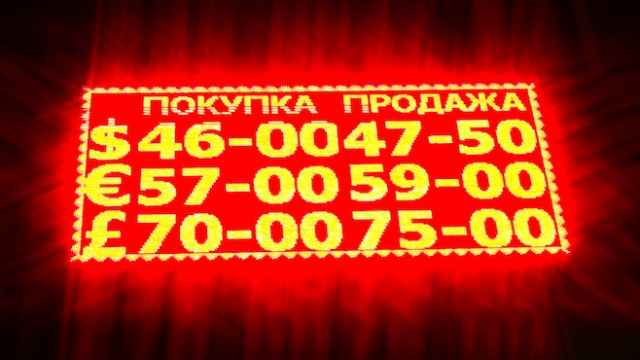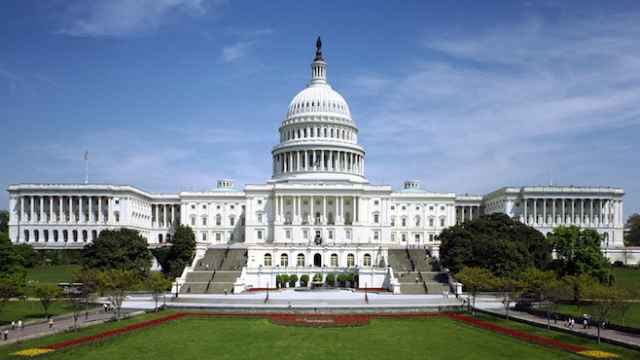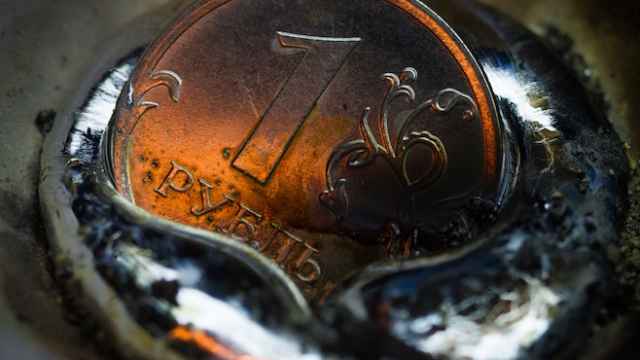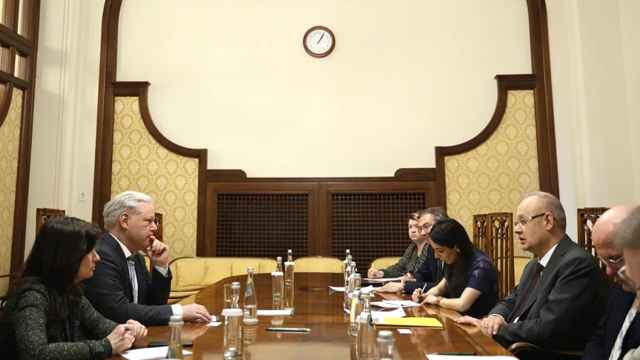The Russian Central Bank said Monday that it expects zero economic growth in 2015 and only 0.1 percent growth in 2016, in a three-year monetary policy strategy that anticipates Western sanctions against Russia will remain until the end of 2017.
The gloomy forecasts underscore the damaging impact that two major external shocks, falling oil prices and Western financial sanctions imposed over the Ukraine crisis, are set to have on the Russian economy in the years to come.
The base scenario also forecast that capital investment would fall by 3.1 percent next year, while inflation would be 6.2-6.4 percent by year-end, above the bank's 4.5 percent goal.
The bank said that it was also calculating its base forecasts on the Urals oil price recovering to average $95 in 2015 but falling to $90 by the end of 2017, a long term downward trend which it said would constrain economic growth.
The three-year plan has been revised significantly since September, when the bank published a draft version that envisaged economic growth of 1 percent in 2015 and 1.8-2.0 percent in 2016, with oil prices recovering to above $100 per barrel.
In its revised plan, the bank also significantly raised its forecasts for net private sector capital outflows, to $128 billion this year and $99 billion in 2015, reflecting the damaging impact of Western sanctions on investment flows.
The bank anticipated that the current account surplus would be $60 billion in 2015, while the bank's forex reserves would fall by $42 billion as a result of forex operations and conversion of sovereign wealth funds.
The bank said that it intends to stick to its plan of completely floating the ruble by the end of this year, abolishing the currency's floating corridor, but that the bank could carry out irregular forex interventions in future if financial stability is threatened.
It said that a recently launched scheme to provide forex repos to banks would be its major instrument for operations with foreign currency, anticipating that demand for them would remain at least in 2015.
The bank also considered a range of other scenarios. These included the possibility that the oil price would recover to $105 per barrel next year and the possibility that sanctions would be lifted in the third quarter of next year, as well as a "stress scenario" in which the oil price fell to $60 per barrel by the end of 2015, which the bank considered unlikely.
A Message from The Moscow Times:
Dear readers,
We are facing unprecedented challenges. Russia's Prosecutor General's Office has designated The Moscow Times as an "undesirable" organization, criminalizing our work and putting our staff at risk of prosecution. This follows our earlier unjust labeling as a "foreign agent."
These actions are direct attempts to silence independent journalism in Russia. The authorities claim our work "discredits the decisions of the Russian leadership." We see things differently: we strive to provide accurate, unbiased reporting on Russia.
We, the journalists of The Moscow Times, refuse to be silenced. But to continue our work, we need your help.
Your support, no matter how small, makes a world of difference. If you can, please support us monthly starting from just $2. It's quick to set up, and every contribution makes a significant impact.
By supporting The Moscow Times, you're defending open, independent journalism in the face of repression. Thank you for standing with us.
Remind me later.


